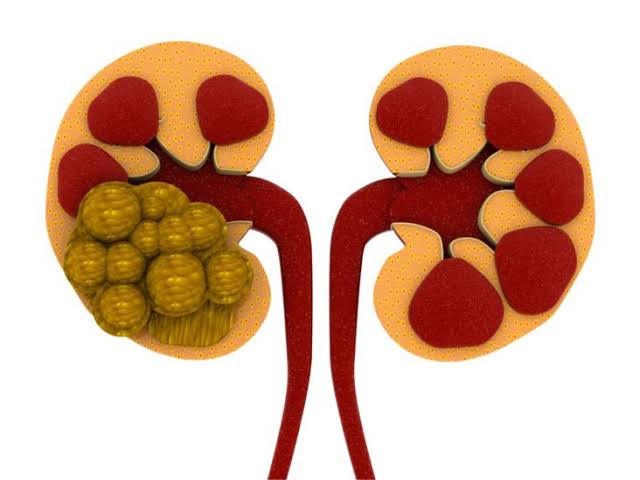URINARY CALCULUS
Though uncommon in children. It could be the cause of dysuria and hematuria. It is more common in male children than in female children. The exact mechanism of calculus formation is not known.
Causes of Urinary Calculus
1. Recurrent urinary tract infection
2. Urinary stasis due to congenital anomalies like ureteric stricture
3. Hypercalciuria
4. Hyperoxaluria
5. Idiopathic
YOU CAN READ MORE ARTICLE –
https://medium.com/@rishu8565072311/common-cold-in-pediatrc-age-group-876172989cd2?source=friends_link&sk=690baac20ced0950d0126a694b383552
Clinical Features of urinary calculus
1. It may present like renal colic: Pain in abdomen, vomiting and fever.
2. Dysuria, hematuria: In vesical stone, pain may be at the tip of penis with hematuria mainly at the end of passing urine.

URINARY CALCULUS
Differential Diagnosis OF URINARY CALCULUS
Causes of dysuria and hematuria
1. Acute glomerulonephritis
2. Urinary tract infection
Investigations
1. Urine examination Color may be brown to bright red a. b. Albumin: Trace to + 1 c. Microscopic examination: Plenty of RBCS, few pus cells may be present. Crystals of calcium oxalate, urates may be present. Urine examination may be normal or it may show only crystalluria.
2. Plain X-ray abdomen for KUB X-ray is taken after giving Syr. Dimol for two days. Good preparation is required for demonstration of small calculus in KUB.
3. IVP (Intravenous pyelogram) Done to see if stone is in kidney or large ureteric stone causing back pressure changes.
4. Ultrasonography of urinary tract To judge the size of kidneys and bladder pathology.
Treatment URINARY CALCULUS
Conservative treatment: For small ureteric and vesical stones.
1. Advice patient to take plenty of water.
2. Diuretic: Tab. Esidrex 1/4 OD- Used with caution.
3. Drug which can dissolve the calcu- lus: Ayurvedic preparation like Tab. Cystone 1 to 2 tablets twice daily for 1 month. It may prove benen- cial in some cases.
4. Treatment of ureteric colic: Inj. Cyclopam may be given in older children. Antibiotic: Ampicillin- 50-100 mg/kg/ day for 7 days for associated infection.
Surgical Treatment URINARY CALCULUS
Indications for surgery-
1. Large stone causing hydronephrotic changes in kidney
2. Bilateral calculi with obstructive changes
3. Large vesical calculus
ACUTE GLOMERULONEPHRITIS –
In children, poststreptococcal acute glomerulonephritis is more common. It occurs following the infection of B hemolytic streptococci. It is more common, following B-hemolytic streptococci type 4 and 12 causing pharyngitis and B hemolytic streptococci type 49 causing pyoderma. The disease manifests 1 or 2 weeks after the attack of sore throat or pyoderma.
Antibodies are formed against the streptococcal antigen. Antigen- Anti- body complex gets trapped in glomeru- lar capillaries where they combine with complement and initiates inflammatory changes. These changes include, en- largement of glomeruli, narrowing of capillary loops and infiltration of Poly- morphs in glomeruli.
It is more common in school going children and again more seen in boys. The ratio of boys to girls is 2:1. It is rare below three years. If it is not detected in early stages complications are common.
Clinical Features Symptoms OF URINARY CALCULUS
1. Hematuria:
Smoky brown col- ored urine. This feature may go unnoticed in school going children, because it is a painless hematuria and initially the child may not have that much amount of discomfort to report it to the mother.
2. Oliguria:
It correlates with severity of the disease. In severe cases oliguria is severe and may be the first symptom for which patient is brought to the doctor.
3. Edema:
In initial stage, periorbital edema is more common than edema of feet, periorbital edema is more prominent after getting up from sleep.
4. Symptoms due to Complications
(a) Due to hypertension, left ven- tricular failure and pulmonary edema: Breathlessness.
( b.) Due to hypertensive encepha- lopathy: Headache, Vomiting, Drowsiness, Convulsions. C. Due to Renal Failure: Severe oliguria or anuria.
5. Associated Symptoms:
Mild to moderate fever irritable and sick looking child.
NOTE- Do not follow any treatment And medicine provided here ,please consult nearest hospital and talk to your doctor.This artical is only for knowledge purpose.
Team-Dailyayurvedic
Thank you


